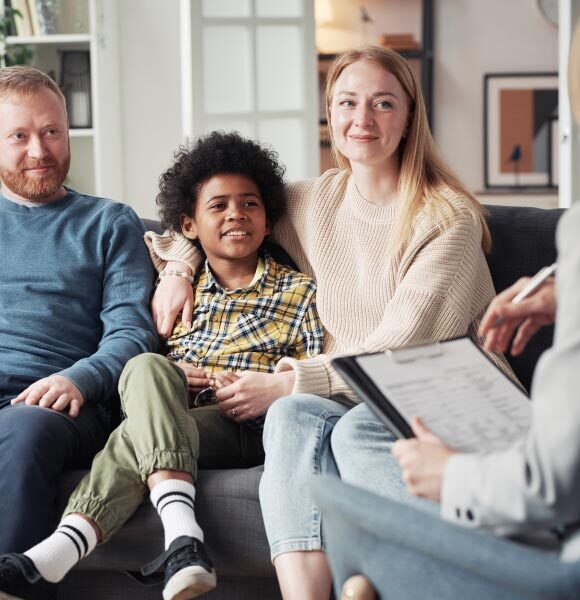Family Therapy
Improving interactions and reducing distress among family members.
Family therapy is a form of psychotherapy that focuses on improving interactions between family members to reduce distress and conflict. This type of counseling views problems as patterns or systems that need adjusting. It’s not always necessary for all family members to be present in the session.


Embracing Support
“Family” defined by supportive roles, not just blood relations.
Family therapy emphasizes the importance of relationships for mental health, regardless of household proximity or biological ties. This counseling method helps families adapt to challenges like addiction or medical issues, focusing on improving communication and reducing conflict.
Addressing Key Issues
7 common reasons for seeking family therapy include
- Child's school, substance abuse, or eating disorders
- Major trauma impacting the family (e.g., relocation, natural disaster, family member incarceration)
- Unexpected or traumatic loss of a family member
- Adjustment to new family dynamics (e.g., birth, adoption, foster care)
- Domestic violence
- Divorce
- Parental conflict


Positive Outcomes
Family therapy helps improve dynamics through beneficial results in:
- Develops and maintains healthy boundaries
- Fosters cohesion and communication among family members
- Promotes problem solving through understanding of family patterns and dynamics
- Builds empathy and understanding.
- Reduces family conflict
Exploring Systemic Approaches in Marriage and Family Therapy.
Discovering deep-seated emotions and transformative connections through systemic approaches in marriage and family therapy offers lasting solutions.
Marriage and Family Therapists analyze family dynamics and multi-generational patterns that shape behavior. Recognizing these patterns allows individuals to enact change and gain insight into personal development.
Therapists assess family structure, hierarchy, and boundaries to understand individual behavior within family contexts. They aim to modify dysfunctional interaction patterns without assigning blame.
Family counselors view families as interconnected systems where changes in one member influence the entire family. They address emotional patterns passed down through generations, impacting family dynamics and individual well-being.